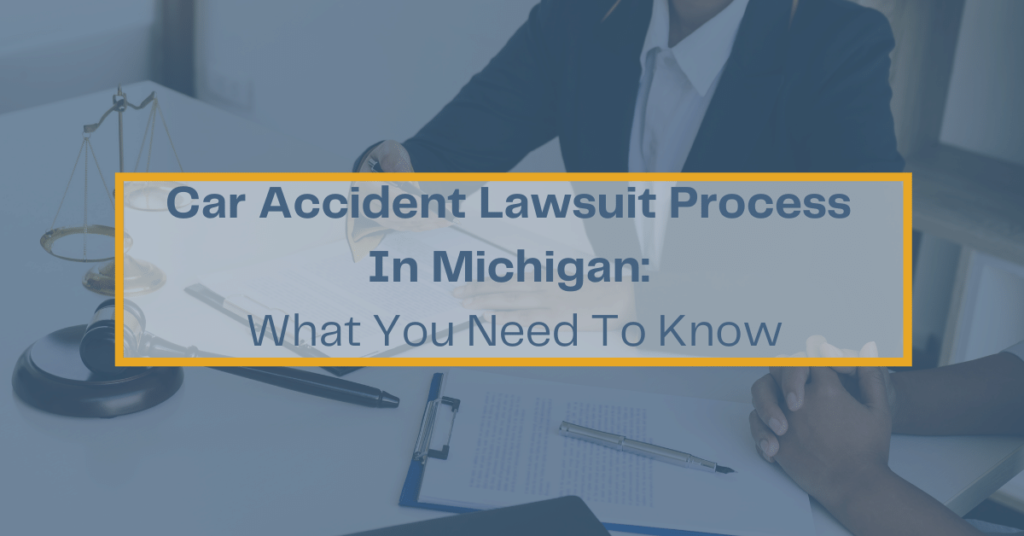Car insurance may cover a lawsuit, particularly the personal liability portion of the policy, which can provide financial support for legal defense in a civil claim. This coverage is available for various insurance policies, including homeowners’ insurance, auto insurance, and condo insurance.
Understanding Car Insurance Lawsuits
Car insurance is designed to provide financial protection in the event of an accident. However, what many people may not realize is that car insurance can also offer coverage in the event of a lawsuit. Understanding how car insurance coverage works when it comes to lawsuits can help you be prepared in case you ever find yourself in this situation.
How Car Insurance Coverage Works
Car insurance coverage typically includes several different types of coverage, such as liability coverage, collision coverage, and comprehensive coverage. These coverages help to protect you financially in case of an accident, damage to your vehicle, or other unexpected events. When it comes to lawsuits, the liability coverage portion of your car insurance policy is what typically comes into play.
When Car Insurance Covers Lawsuits
Car insurance coverage may cover lawsuits in specific situations. If you are found to be at fault for an accident and the other party decides to file a lawsuit against you, your car insurance company may step in to provide legal defense and financial support. The liability coverage portion of your policy can help cover the costs of legal fees, court expenses, and any settlements or judgments that may be awarded to the other party.
Types Of Lawsuits Covered By Car Insurance
Car insurance can cover a variety of lawsuits related to car accidents. Some common types of lawsuits that may be covered include:
- Bodily injury lawsuits: If someone sustains injuries as a result of the accident, they may sue for medical expenses, lost wages, and other damages.
- Property damage lawsuits: If the accident caused damage to the other party’s vehicle or other property, they may sue for the cost of repairs or replacement.
- Wrongful death lawsuits: In the unfortunate event that someone is killed in the accident, their loved ones may file a wrongful death lawsuit seeking compensation for their loss.
It’s important to note that the specific coverage and limits of your car insurance policy may vary, so it’s essential to review your policy and speak with your insurance agent to fully understand what is covered in the event of a lawsuit.
In conclusion, car insurance can provide coverage for lawsuits in certain situations. Understanding how car insurance coverage works when it comes to lawsuits and knowing the types of lawsuits that may be covered can help you be prepared and protect your financial well-being in case of an accident.

Credit: www.michiganautolaw.com
Determining Liability
Car insurance may cover a lawsuit in certain situations, such as personal liability claims. This means that your insurance policy may provide financial support for your legal defense, regardless of the outcome of the lawsuit. It’s important to understand the specifics of your policy and consult with professionals if you are being sued.
Establishing Fault In A Car Accident
Determining liability in a car accident is crucial when it comes to understanding whether car insurance will cover a lawsuit. In order to establish fault, insurance companies and courts consider various factors, such as police reports, eyewitness testimonies, traffic laws, and any available evidence like photographs or videos from the accident scene. This process involves examining the actions and negligence of each party involved to determine who is at fault for the accident. It’s important to note that the at-fault party’s insurance typically covers the damages and injuries resulting from the accident.Limits Of Car Insurance Coverage
While car insurance provides coverage for accidents, it’s essential to understand its limits. Car insurance policies have specific coverage limits that define the maximum amount the insurance company will pay for different types of damages. These limits generally consist of bodily injury liability coverage and property damage liability coverage. Bodily injury liability coverage helps cover medical expenses, lost wages, and other financial losses incurred by the other party involved in the accident. It also provides legal defense if the other party files a lawsuit against you. On the other hand, property damage liability coverage helps cover the cost of repairing or replacing the other party’s vehicle or any other damaged property. It’s important to review your policy to ensure you have adequate coverage that aligns with your financial situation. In some cases, additional coverage options like personal injury protection (PIP) or uninsured/underinsured motorist coverage (UM/UIM) may be available to provide extra protection. Remember, car insurance coverage can vary depending on your policy and the state in which you reside. Checking with your insurance provider and understanding the details of your policy can help you determine the extent of coverage in the event of a lawsuit.What Car Insurance Typically Covers
Car insurance typically covers a car accident victim’s vehicle replacement or repair costs and medical expenses. However, it may not provide coverage for a lawsuit, where the individual may need to sue the at-fault driver directly if their insurance policy limits are insufficient.
Car insurance is designed to provide financial protection in the event of an accident or damage to your vehicle. While every policy is different, most car insurance typically covers three main areas: property damage, bodily injury, and medical expenses.
Property Damage
In the unfortunate event of an accident, your car insurance typically covers property damage caused to other vehicles or structures. This includes the cost of repairs or replacement for the damaged property. The coverage amount may vary depending on your policy, so it is important to review your insurance terms to understand the limits of your coverage.
Bodily Injury
Car accidents can result in bodily injury for both drivers and passengers involved. Car insurance typically covers the medical expenses and other costs associated with bodily injuries caused by the accident. This can include hospital bills, rehabilitation expenses, and even lost wages due to the inability to work while recovering.
Medical Expenses
In addition to bodily injury coverage, car insurance also typically covers medical expenses for yourself and your passengers if they sustain injuries in an accident. This coverage can help alleviate the financial burden of medical bills, allowing you to focus on recovery without worrying about the costs.
It’s important to note that the specific coverage and limits may vary depending on your car insurance policy. It is always a good idea to review your policy details and discuss any questions or concerns with your insurance provider. By understanding what your car insurance typically covers, you can have peace of mind knowing that you will be protected in case of an accident.

Credit: www.forbes.com
What Car Insurance Doesn’t Cover
Car insurance is a valuable protective measure that offers financial support in the event of an accident or damage to your vehicle. However, it’s important to understand that car insurance does not cover everything. There are certain situations and circumstances in which your car insurance policy may not provide coverage. This section will explore three common scenarios where car insurance typically does not offer protection, including intentional acts, criminal activities, and contractual disputes.
Intentional Acts
Car insurance is designed to provide coverage for accidents and unforeseen incidents. However, it does not extend protection for intentional acts. If you intentionally cause damage to another vehicle or engage in activities that lead to an accident, your car insurance will not cover the resulting damages. Insurance companies consider intentional acts as a form of fraud and will deny coverage in such cases. It’s important to note that intentionally causing an accident or damage can have serious legal consequences and may result in legal action against you.
Criminal Activities
Another scenario where car insurance does not provide coverage is when the accident or damages occur as a result of criminal activities. If you are involved in criminal activities while driving, such as participating in a getaway after committing a crime or using your vehicle for illegal purposes, your car insurance policy will not cover any resulting damages. Engaging in criminal activities not only puts you at risk of legal consequences but also voids your car insurance coverage.
Contractual Disputes
Your car insurance policy is a contract between you and the insurance company, outlining the terms and conditions of coverage. However, it does not cover contractual disputes that may arise. If you have a dispute regarding the terms of your policy, such as a disagreement over coverage limits or claim settlement amounts, it is not covered by your car insurance. These types of disputes need to be resolved through legal channels or by consulting a legal professional.
In conclusion, while car insurance provides essential protection in the event of accidents and damage, it does not cover intentional acts, criminal activities, or contractual disputes. It’s important to be aware of these limitations and make informed decisions while on the road to ensure adequate protection.
Steps To Take If Sued For A Car Accident
Being sued for a car accident can be a stressful and overwhelming experience. It’s important to take immediate action to protect yourself legally and financially. Here are the steps you should take if you find yourself facing a lawsuit:
Notify Your Insurance Company
The first thing you should do is notify your insurance company about the lawsuit. Most car insurance policies provide coverage for legal defense costs and potential settlement amounts in civil claims. When reporting the incident, provide all the necessary details and documentation, including the lawsuit papers.
Gather Evidence
To build a strong defense in the lawsuit, you’ll need to gather evidence that supports your case. This includes collecting any photographs, videos, or witness statements from the accident scene. You should also gather any relevant documentation, such as police reports, medical records, and repair estimates. Make sure to keep all these documents organized and easily accessible.
Consult With An Attorney
It’s crucial to consult with an attorney who specializes in car accident lawsuits. They will provide you with legal advice and help protect your rights throughout the legal process. An experienced attorney can review your case, analyze the evidence, and develop a solid defense strategy on your behalf.
Remember, each case is unique, and the steps you take may vary depending on the specifics of your situation. It’s best to consult with a legal professional who can provide personalized guidance based on your circumstances.

Credit: www.tdi.texas.gov
Frequently Asked Questions Of Does Car Insurance Cover Lawsuit
Does Insurance Cover Sue?
Yes, some insurance policies cover civil claims, providing financial support for your legal defense in a civil lawsuit. This includes homeowners’ insurance, auto insurance, condo insurance, and more.
What Is The Average Settlement For A Car Accident In Texas?
The average settlement for a car accident in Texas can vary depending on various factors such as the extent of injuries, property damage, and liability. However, there is technically no limit on the amount of economic damages that can be recovered through a lawsuit in Texas.
Non-economic damages for car accidents are also not limited. It is best to consult with a legal professional to understand the specific circumstances of your case.
What To Do If Someone Sues You For A Car Accident In California?
If someone sues you for a car accident in California, seek legal counsel immediately. An attorney can help protect your interests and guide you through the legal process. Do not try to handle the situation on your own.
How Much Can Someone Sue For A Car Accident In Texas?
In Texas, there are no limits on the amount of economic damages someone can sue for in a car accident. Non-economic damages for car accidents are also not limited.
Conclusion
To summarize, car insurance can provide financial support for your legal defense in a civil claim, regardless of the outcome. This includes coverage from homeowners’ insurance, auto insurance, condo insurance, and more. It’s important to seek professional assistance if you are being sued for a car accident, as your insurance may have limits that could leave you personally responsible for the expenses.
Remember, having car insurance doesn’t guarantee you won’t be sued, but it can help protect you to some extent.

